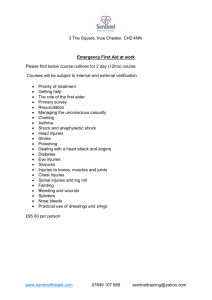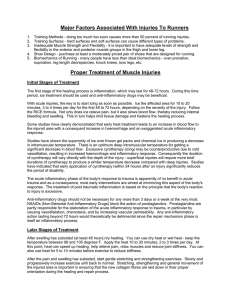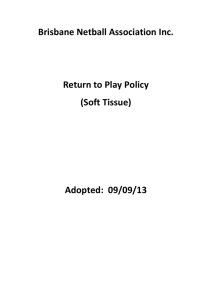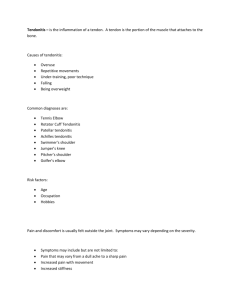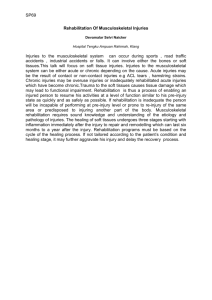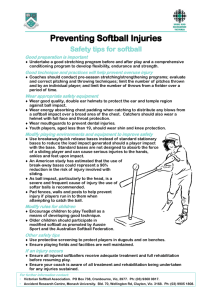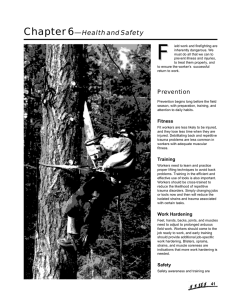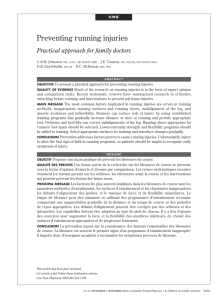ANN STREET PHYSIOTHERAPY CLINIC
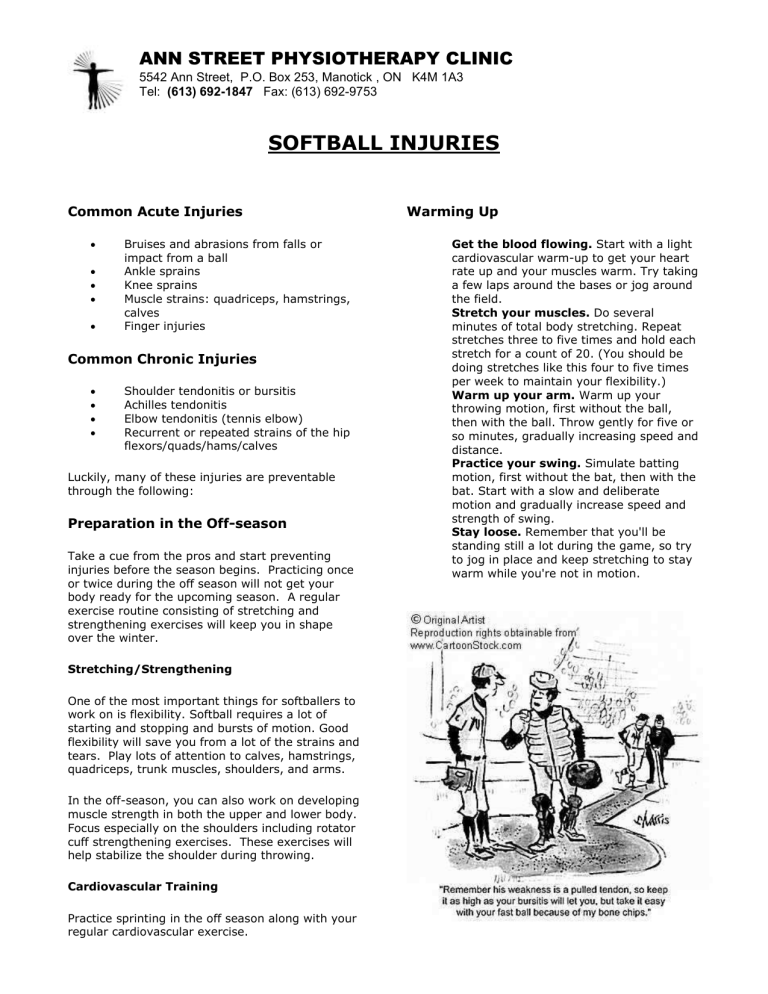
ANN STREET PHYSIOTHERAPY CLINIC
5542 Ann Street, P.O. Box 253, Manotick , ON K4M 1A3
Tel: (613) 692-1847 Fax: (613) 692-9753
Common Acute Injuries
SOFTBALL INJURIES
Warming Up
Bruises and abrasions from falls or impact from a ball
Ankle sprains
Knee sprains
Muscle strains: quadriceps, hamstrings, calves
Finger injuries
Common Chronic Injuries
Shoulder tendonitis or bursitis
Achilles tendonitis
Elbow tendonitis (tennis elbow)
Recurrent or repeated strains of the hip flexors/quads/hams/calves
Luckily, many of these injuries are preventable through the following:
Preparation in the Off-season
Take a cue from the pros and start preventing injuries before the season begins. Practicing once or twice during the off season will not get your body ready for the upcoming season. A regular exercise routine consisting of stretching and strengthening exercises will keep you in shape over the winter.
Stretching/Strengthening
Get the blood flowing. Start with a light cardiovascular warm-up to get your heart rate up and your muscles warm. Try taking a few laps around the bases or jog around the field.
Stretch your muscles. Do several minutes of total body stretching. Repeat stretches three to five times and hold each stretch for a count of 20. (You should be doing stretches like this four to five times per week to maintain your flexibility.)
Warm up your arm. Warm up your throwing motion, first without the ball, then with the ball. Throw gently for five or so minutes, gradually increasing speed and distance.
Practice your swing. Simulate batting motion, first without the bat, then with the bat. Start with a slow and deliberate motion and gradually increase speed and strength of swing.
Stay loose. Remember that you'll be standing still a lot during the game, so try to jog in place and keep stretching to stay warm while you're not in motion.
One of the most important things for softballers to work on is flexibility. Softball requires a lot of starting and stopping and bursts of motion. Good flexibility will save you from a lot of the strains and tears. Play lots of attention to calves, hamstrings, quadriceps, trunk muscles, shoulders, and arms.
In the off-season, you can also work on developing muscle strength in both the upper and lower body.
Focus especially on the shoulders including rotator cuff strengthening exercises. These exercises will help stabilize the shoulder during throwing.
Cardiovascular Training
Practice sprinting in the off season along with your regular cardiovascular exercise.
MANAGEMENT OF ACUTE
INJURIES
R.I.C.E.
Proper early management of an injury can help prevent a chronic problem. Using the PRICE recipe will help to guide the healing process.
R – Rest
If you have injured yourself, STOP playing and rest. The injury may require a few days off from games. If severe enough, you may need to rest from walking by using crutches for a couple of days.
I – Ice
Ice will help control swelling and bruising. Ice regularly (ie. 2-3 times per day) for a minimum of
48 hours. If swelling persists beyond 48 hours,
CONTINUE icing. To avoid frostbite, leave the icepack on for no more than 10- 15 minutes. A bag of frozen vegetables works well.
C – Compression
A tensor bandage wrap can help support the area and compress the swelling, preventing it from getting worse. Use a “figure 8” pattern, using more compression lower and easing it off as you get higher. Wrapping the bandage around in a circle acts like a tourniquet and will not provide good compression.
E – Elevation
Keep the injured part elevated above the heart when you are sitting or lying down, to decrease swelling.
OTHER TIPS
Continue moving the body part gently in the pain-free range of motion to help guide the scar tissue healing and prevent stiffness from setting in.
As the acute pain subsides, gentle stretching of the body part can help healing and bring circulation to the area to help continue healing.
Protecting the body part when you return to softball may be necessary using a tensor bandage, taping or a wearing a brace.
SOFTBALL STRETCHES
Hold the stretches for 20 seconds, repeat each one
3 times. Warm up the muscles first with a light jog. Stretch before and after your game.
Also, stretch your forearm by extending the elbow and bending the wrist back. Repeat with bending the wrist down.

